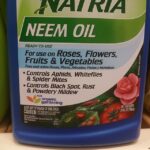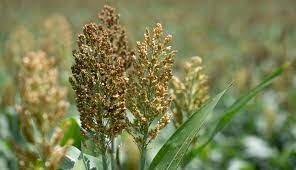No products in the cart.

Organic Insecticides Safe & Effective Pest Control
Organic Insecticides Examples and Benefits for Your Garden
Introduction
In today’s world, more and more people are becoming aware of the dangers posed by synthetic chemicals. Whether it’s in the food we eat, the air we breathe, or the products we use in our gardens, there’s a growing desire to return to more natural and organic solutions. When it comes to gardening, one of the most significant concerns is how to control pests without resorting to harmful chemicals. This is where organic insecticides come into play. But what exactly are organic insecticides, and how can they help you maintain a healthy garden? Let’s dive in and explore some examples and benefits.

Table of Contents
What Are Organic Insecticides?
Organic insecticides are naturally derived substances used to control pests without relying on synthetic chemicals. These insecticides are often made from plants, minerals, or other natural materials. Unlike conventional insecticides, organic options are generally safer for humans, pets, and the environment. They work by targeting specific pests while minimizing harm to beneficial insects, such as bees and butterflies.
Why Choose Organic Insecticides?
Why should you consider using organic insecticides in your garden? The answer is simple: they offer a safer, more sustainable way to protect your plants from harmful insects. Synthetic chemicals can be effective, but they often come with a host of negative side effects, including contamination of soil and water, harm to non-target species, and even potential health risks to humans. Organic insecticides, on the other hand, break down more quickly in the environment and are less likely to cause long-term ecological damage.
Common Organic Insecticides Examples
Let’s take a look at some of the most popular organic insecticides that gardeners use today. Each of these has its own unique properties and benefits, making them suitable for various types of plants and pests.
Neem Oil: The All-Rounder
Neem oil, extracted from the seeds of the neem tree, is one of the most versatile organic insecticides available. It works by disrupting the life cycle of insects, preventing them from feeding, mating, or laying eggs. Neem oil is effective against a wide range of pests, including aphids, whiteflies, and spider mites. Moreover, it’s biodegradable and non-toxic to humans and animals, making it a safe choice for home gardens.
Diatomaceous Earth: The Natural Desiccant
Made from the fossilised remains of diatoms, a form of algae, diatomaceous earth is a fine powder. It functions by physically destroying insects’ exoskeletons, which leads to their dehydration and eventual death.This organic insecticide is particularly effective against crawling insects such as ants, bedbugs, and fleas. Since diatomaceous earth is not a chemical poison, it’s safe to use around pets and children.
Pyrethrin: The Chrysanthemum Extract
Pyrethrin is a natural insecticide derived from the flowers of chrysanthemums. It works by attacking the nervous systems of insects, leading to paralysis and death. Pyrethrin is effective against a broad spectrum of pests, including mosquitoes, flies, and beetles. However, it is important to use it carefully, as it can be toxic to fish and beneficial insects if not applied correctly.
Insecticidal Soaps: Gentle Yet Effective
Insecticidal soaps are made from potassium salts of fatty acids and are used to control soft-bodied insects like aphids, mealybugs, and mites. By piercing the insect’s outer shell, these soaps operate to kill and dehydrate the insect. Since insecticidal soaps break down quickly and leave no harmful residue, they are safe to use on vegetables, fruits, and ornamentals.
Garlic and Onion Spray: The Kitchen Solution
Did you know that you can make an effective insecticide using ingredients right from your kitchen? Garlic and onion sprays are natural repellents that can deter a variety of pests, including aphids, beetles, and caterpillars. The strong smell of garlic and onion masks the scent of plants, making them less attractive to insects. Plus, these sprays are safe, non-toxic, and easy to make at home.
Bacillus Thuringiensis (Bt): The Biological Control
Bacillus thuringiensis, commonly known as Bt, is a bacterium that produces toxins harmful to certain insects. It is particularly effective against caterpillars, mosquito larvae, and some beetles. When insects ingest Bt, the toxins disrupt their digestive system, leading to death. Bt is considered safe for humans, animals, and beneficial insects, making it an excellent choice for organic pest control.
Using Organic Insecticides Safely
While organic insecticides are generally safer than synthetic ones, it’s still important to use them correctly. Always follow the instructions on the label, and be mindful of the timing and method of application. For example, avoid spraying during the hottest part of the day to prevent plant damage, and try to target pests directly to minimize the impact on beneficial insects.
DIY Organic Insecticides
If you’re interested in making your own organic insecticides, there are plenty of options to explore. From simple mixtures like soap and water to more complex concoctions like garlic and chili pepper sprays, DIY insecticides can be an effective and economical way to protect your garden. Just be sure to test any homemade spray on a small area of your plants first to ensure it won’t cause damage.
The Environmental Impact of Organic Insecticides
One of the main advantages of organic insecticides is their reduced environmental impact. Since they are made from natural materials, they tend to break down more quickly in the environment and are less likely to accumulate in the soil or water. It’s still crucial to utilise them appropriately, though. Overuse or misuse of any insecticide, organic or not, can lead to unintended consequences, such as the development of pest resistance or harm to non-target species.
How to Choose the Right Organic Insecticide for Your Garden
Choosing the right organic insecticide depends on several factors, including the type of pests you’re dealing with, the plants you’re protecting, and your overall gardening goals. For example, neem oil might be the best choice for a general-purpose insecticide, while diatomaceous earth could be more effective for targeting crawling insects. Consider the specific needs of your garden and do some research to find the most suitable organic insecticide.
Conclusion
In conclusion, organic insecticides offer a safer, more sustainable way to protect your garden from pests. By understanding the different types of organic insecticides and how to use them effectively, you can maintain a healthy garden without relying on harmful chemicals. Whether you choose neem oil, diatomaceous earth, or a homemade garlic spray, there are plenty of options available to suit your gardening needs. Remember, the key to successful pest control is consistency and careful observation. Happy gardening!
FAQs
1. What are organic insecticides?
Organic insecticides are naturally derived substances used to control pests without relying on synthetic chemicals.
2. How does neem oil work as an insecticide?
Neem oil disrupts the life cycle of insects, preventing them from feeding, mating, or laying eggs, making it an effective organic insecticide.
3. Is diatomaceous earth safe to use around pets?
Yes, diatomaceous earth is safe to use around pets as it is a natural, non-toxic substance.
4. Can I make my own organic insecticide?
Yes, you can make your own organic insecticide using ingredients like soap, water, garlic, and chili peppers.
5. What are the environmental benefits of using organic insecticides?
Organic insecticides break down more quickly in the environment and are less likely to cause long-term ecological damage compared to synthetic chemicals.
Go and turn on towards organic farming to save future and thire save childs:
Elevate Plant Growth with Premium Bone Powder – Buy Now!
Organic Cow Dung Compost: Transform Your Garden Naturally
Premium Humic Acid for Healthy Plants | Enhance Soil & Boost Growth
Boost Plant Growth Naturally with Mustard Cake | Organic Fertilizer
Transform Your Garden with NPK Fertilizer | Boost Growth by 30%
Premium Perlite for Enhanced Gardening | Buy Now
Live Earthworms with Enhance Your Garden (soil health)
1 Neem Khali: Unveiling the Wonders of Nature
1Transform your garden with vermiwash-buy now
1 Premium quality Vermicompost [ केचुआ खाद ]
Follow us:


